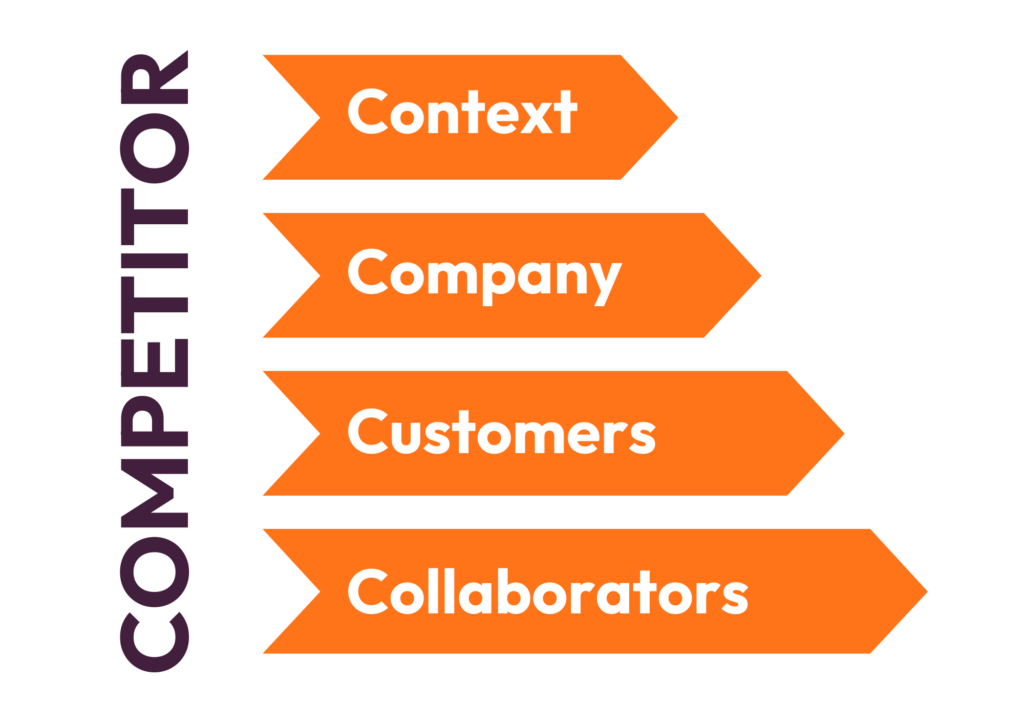Trusted by 1.500+ consultants, coaches, marketers, HR specialists and companies worldwide









Whenever you build questionnaires for a competitor analysis, the trick is to come up with questions that probe as broadly as possible. When you analyze a competitor you want to know everything about them, don’t you? Not just a few aspects.
A useful rule of thumb to make sure you’re covering the necessary ground is to keep in mind 4 Cs that paint your competitors picture: Context, company, customers, and collaborators.
Let’s say, you’ve chosen to approach customers and ex-customers of your competitor.
Here are 30 competitive assessment example questions you could ask divided into 3 categories:
To analyze B2B service companies, these competitor assessment template questions focus on the quality of service delivery, pricing, and the ability to address specific business needs.
The questions explore the professionalism of staff, integration with existing business processes, and overall effectiveness in meeting business challenges. By using a mix of rating scales and qualitative questions, the assessment captures detailed feedback on service strengths and areas for improvement.
When assessing a single competitor, business and marketing experts already use several frameworks to analyze and understand whoever they’re analyzing. These frameworks help businesses to strategically position themselves in relation to the competitor. Here are 10 such frameworks:
"We use Pointerpro for all types of surveys and assessments across our global business, and employees love its ease of use and flexible reporting."

Director at Alere
"I give the new report builder 5 stars for its easy of use. Anyone without coding experience can start creating automated personalized reports quickly."

CFO & COO at Egg Science
"You guys have done a great job making this as easy to use as possible and still robust in functionality."

Account Director at Reed Talent Solutions
“It’s a great advantage to have formulas and the possibility for a really thorough analysis. There are hundreds of formulas, but the customer only sees the easy-to-read report. If you’re looking for something like that, it’s really nice to work with Pointerpro.”

Country Manager Netherlands at Better Minds at Work








